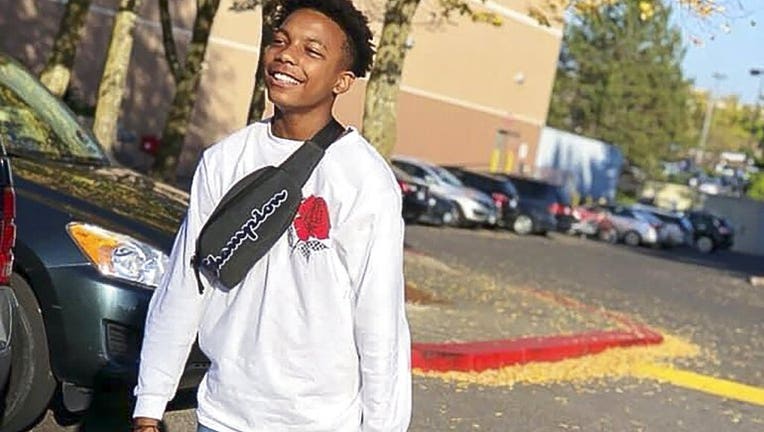Lawsuit: Deputy pinned black boy with knee to neck in Oregon

This July 16, 2019 photo provided by Jarena McDavid, shows her son, Ka'Mar Benbo, a 12-year-old African American boy, in Portland, Ore. The mother of Benbo, now 13, filed a $300,000 lawsuit Thursday, June 18, 2020, saying three sheriff's deputies nea
PORTLAND, Ore. -- The mother of an African American boy filed a $300,000 lawsuit Thursday, saying three sheriff’s deputies near Portland pinned him to the ground — one by pressing a knee on his neck — outside a suburban mall after the 12-year-old witnessed a fight and was walking away.
The incident happened last August, over nine months before widespread national outrage over the killing of George Floyd after he was put in a similar hold by Minneapolis police. The boy, Ka’Mar Benbo, is now 13 but was 12 at the time and the friends he was with repeatedly told Clackamas County deputies his age, the lawsuit said.
In an emailed statement, Sheriff Craig Roberts disputed the allegations and said an investigation did not find any evidence that a deputy placed a knee on the boy’s neck. The deputies were responding to a call about a “large group of juveniles following and physically assaulting a female juvenile” and Benbo was briefly detained and handcuffed because he was the only person who refused to follow orders from deputies, Roberts said.
“We do not train deputies to restrict a person’s airway or impede their ability to breathe. It was determined the involved deputies followed training and policy,” he wrote, adding that the sheriff’s department participated in a “listening session” last October over concerns about the incident.
Roberts said the investigation included a review of photos and videos and interviews with witnesses and deputies. Benbo’s mother, Jarena McDavid, was not interviewed and neither was the child, the family’s attorney, Jason Kafoury, told the AP on Thursday.
“They elbow him in the head and then they take him to the ground, handcuff him and put the knee to the neck and leave him there for several minutes,” Kafoury said. “No police report was generated and they never interviewed my client about what happened.”
Chris Owen, spokesman for the Clackamas County District Attorney, said nothing had been submitted to prosecutors on the incident. “If we get presented the necessary information, we will certainly evaluate it,” he said.
Kafoury said Benbo was a witness to a fight between two girls he didn’t know at Clackamas Town Center, which is in the suburbs south of Portland. Mall security called police and as Benbo and his friends were leaving the mall’s parking lot, responding deputies grabbed him by the arm, Kafoury said.
Benbo’s mother said one of her son’s friends called her to tell her what was happening after Benbo screamed out, “Please, call my mom!”
“It was terrifying. I didn’t know what was happening. I just wanted him not to move and don’t reach for anything,” said McDavid.
The deputies ultimately let Benbo go and no criminal charges were filed. The lawsuit says Benbo suffered scrapes and bruises, headaches, loss of sleep and feelings of racial stigmatization and “fear of police.”
McDavid filed a complaint the day after the incident with the sheriff’s office. The sheriff’s office wrote her a letter saying “we have completed a thorough investigation” and the deputy was exonerated.
“I can only imagine the fear a parent has for their child of color engaging with police. I know that there is nothing I can say to make their worry go away. What I can say is: I will do my part to make sure that we use appropriate force and that every use of force continues to be reviewed by my agency,” Roberts said in his statement.
Authorities told McDavid they didn’t call her about the incident at the time because her son wasn’t injured, she said. The lawsuit includes photographs that show scrapes and bruising around Benbo’s eye and on his cheek.
She said she first contacted an attorney about the case last year, but was pleased the lawsuit was filed Thursday because of the national attention to police brutality and racial injustice following Floyd’s death.
“Right now, it’s a prime time. George Floyd, for goodness sakes — watching his video made me cry because that could have been my child,” McDavid said.

